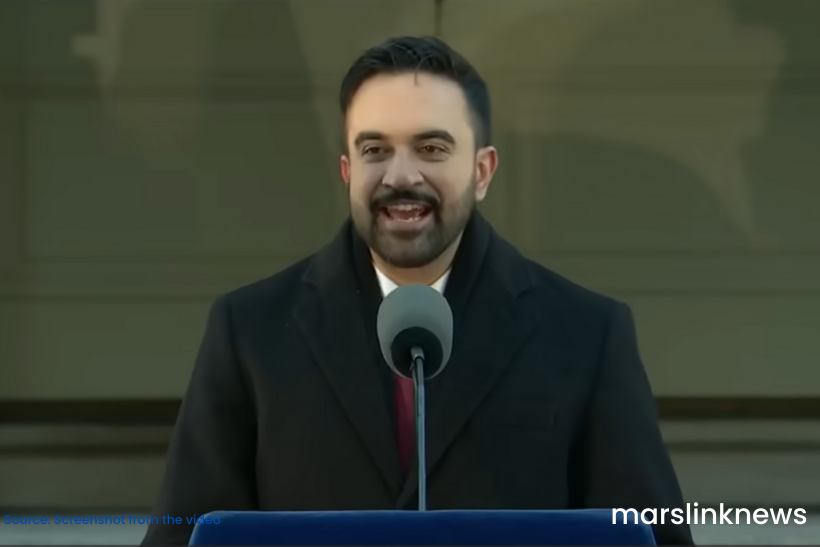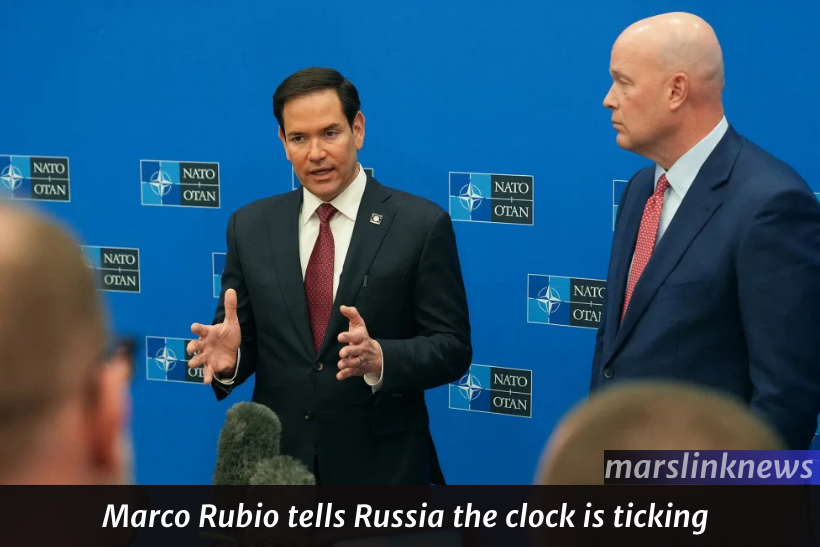Breaking News


Fast, Reliable, and Uncensored News Coverage


US Secretary of State Marco Rubio confirmed on Friday that he met with a Russian envoy earlier this week and sent him back to Moscow with a clear message: time is running out for meaningful progress in Ukraine peace talks.
That time is coming,” Rubio said. “It’s pretty short.”
Speaking at the conclusion of a two-day NATO foreign ministers’ meeting in Brussels, Marco Rubio emphasized that the US expects concrete steps in the coming weeks. “At some point, it will be clear whether you Russia want peace or you don’t want peace,” He says. That He insisted this was not a threat but a reflection of where the Trump administration stands on the issue.
President Donald Trump’s frustration with Russian President Vladimir Putin has become increasingly evident. Trump recently admitted he was “pissed off” during a call with Putin after the Russian leader rejected his proposal for an immediate ceasefire in Ukraine.
While some US officials, including Trump’s envoy Steve Witkoff, maintain that Putin is genuinely interested in a peace deal, many European and Ukrainian leaders believe the Russian president is deliberately stalling.
A senior NATO official in Brussels commented, “Of course, Russia wants peace. Under the right conditions… Under Moscow’s conditions.”
Over the past two months, Marco Rubio has traveled to Saudi Arabia twice for meetings with high-level Russian and Ukrainian officials in an attempt to push negotiations forward. But he warned, “There can’t be talks about talks.”
Kirill Dmitriev, the Russian envoy who visited Washington, described the recently agreed ceasefire on energy infrastructure strikes as “the first de-escalation in three years.” However, a senior NATO official countered that the deal lacks clarity, and Russia is still launching drone strikes in Ukraine.
“There continue to be disagreements between Ukraine and Russia on exactly what is on the list of prohibited energy targets,” the official explained.
Meanwhile, Russia’s recent military actions such as a large conscription drive signal that its broader goals in Ukraine remain unchanged. “The Kremlin will continue to state that Russia is ready to talk, but there is a difference between talking and negotiating,” the NATO official said.
Russian officials insist that any ceasefire deal must address the “root causes” of the war. “We take the models and solutions proposed by the Americans very seriously, but we can’t accept it all in its current form,” Russia’s Deputy Foreign Minister Sergei Ryabkov said this week. “As far as we can see, there is no place in them today for our main demand… That must be overcome.”
What’s Next?
While NATO members reiterated their support for Ukraine, the Trump administration has yet to commit to long-term security guarantees. Marco Rubio met with Ukraine’s Foreign Minister Andrii Sybiha on the sidelines of the Brussels meeting, where Sybiha accused Russia of violating the ceasefire agreement.
At the same time, Russia appears eager to resume financial and diplomatic relations with the US. Dmitriev, the head of Russia’s sovereign wealth fund, visited Washington to discuss potential economic cooperation. A senior NATO official, however, remained skeptical:
“Russia’s goals haven’t changed at all. It is trying to stall for time, avoid war concessions, and focus instead on sanctions relief and regaining its place in the international community.”
MarsLink News: Source: CNN